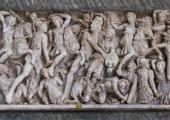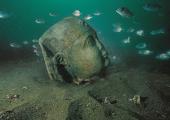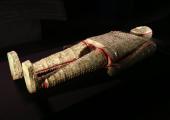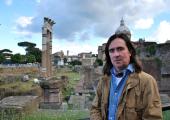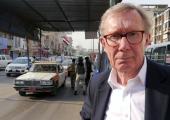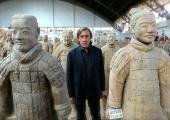Civilisations, BBC Two review - no shocks from Schama
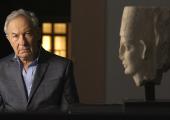
The much-heralded successor to Kenneth Clark's series reveals little new so far
Lord Clark – “of Civilisation”, as he was nicknamed, not necessarily affectionately – presented the 13 episodes of the eponymous series commissioned by David Attenborough for BBC Two in 1969; it was subtitled “A Personal View”, and encompassed only Western Europe (from which even Spain was excluded).

